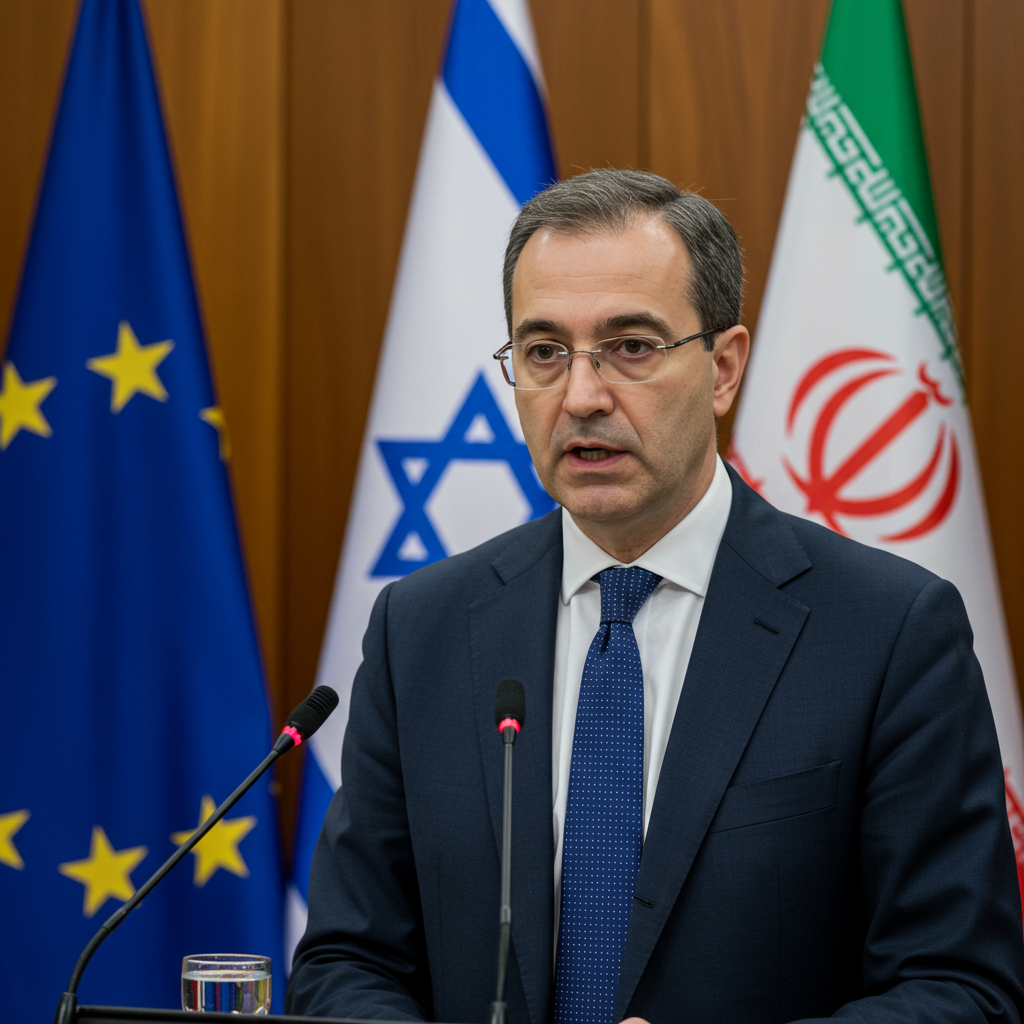Recent hostilities between Israel and Iran have brought Europe’s foreign policy under intense scrutiny, sparking accusations of hypocrisy and a damaging double standard. Critics argue that the European response—condemning Iran’s retaliatory strikes while largely overlooking or even endorsing Israel’s initial attack on Iranian territory—undermines the very “rules-based order” Europe claims to champion.
This perceived inconsistency has significant implications for Europe’s credibility, particularly in the Global South, and threatens to accelerate its geopolitical decline.
The Sequence of Attacks and Europe’s Reaction
The cycle of escalation began with an Israeli strike on Iranian territory, an act that violated Iranian sovereignty and reportedly resulted in casualties. Iran subsequently launched retaliatory strikes targeting Israeli territory.
Despite the sequence beginning with an Israeli action, European leaders, including the E3 (Britain, France, and Germany) and top EU officials, primarily focused their condemnation on Iran’s response. French President Emmanuel Macron, for instance, condemned Iran’s nuclear program while reaffirming “Israel’s right to defend itself.” European Commission President Ursula von der Leyen echoed this sentiment, adding general calls for restraint. The German foreign ministry specifically “strongly condemned” Iran’s attack on Israeli territory, while offering full endorsement of Israel’s actions.
This stance is seen by many as problematic because it effectively ignores the initial act of aggression by one party while severely censuring the retaliation by the other.
A Selective “Rules-Based Order”?
Critics argue that Europe’s reaction exposes a deep flaw in its approach to international law. They point to Europe’s strong invocation of Article 2(4) of the U.N. Charter, which prohibits the threat or use of force against the territorial integrity of any state, in the context of conflicts like the one in Ukraine. Yet, by condoning or remaining silent on Israel’s strike—an act arguably lacking a clear legal basis for self-defense under international law—Europe appears to apply international rules selectively.
This differential treatment is interpreted by some not as upholding universal principles, but rather enforcing a “tribalist identity,” where rules apply strictly to adversaries but not to allies. This selective application is increasingly noted and criticized globally, further eroding Europe’s moral authority.
Respected international figures have voiced sharp criticism. Mohamed ElBaradei, former IAEA head, reportedly offered a reminder on international law, emphasizing the prohibition of attacks on nuclear facilities and the general restriction on force. Similarly, the U.N. special rapporteur, Francesca Albanese, questioned statements that seemed to imply only Israel possessed the right to self-defense in the region.
Diplomatic Failures Fueling Escalation
This immediate crisis response is seen against a backdrop of serial European diplomatic failures that critics argue helped create fertile ground for escalation.
A key failure cited is the E3/EU’s inability to effectively uphold the Joint Comprehensive Plan of Action (JCPOA), the Iran nuclear deal, after the U.S. withdrawal. Despite rhetorical support, Europe’s reluctance to shield EU firms from U.S. sanctions allowed the deal to languish, damaging trust with Tehran and removing a key diplomatic off-ramp. Furthermore, critics note that the EU pushed for an IAEA resolution censoring Iran just days before the Israeli strike, an action seen by some as torpedoing de-escalation efforts and increasing the risk of further escalation, including potential U.N. sanctions or even Iran’s withdrawal from the Nuclear Non-Proliferation Treaty (NPT).
These failures, combined with the recent selective condemnation, have reportedly solidified Tehran’s view that negotiation with Europe is futile, leading Iran to perceive the E3/EU as not only weak but actively counterproductive.
Consequences for Europe and Regional Stability
The likely fallout from Europe’s stance is severe. Predicted consequences include:
Incineration of Trust: Further damage to Europe’s standing and trust with Iran and countries in the Global South.
Nuclear Proliferation Risk: Providing a strong incentive for Iran, including potentially less hardline elements, to pursue nuclear weaponization as a deterrent, making NPT withdrawal a more tangible risk.
- Increased Blowback: Heightened risks of uncontrolled migration, terrorism on European soil or against European interests abroad, and potential energy shocks if regional tensions impact vital shipping lanes like the Strait of Hormuz.
- responsiblestatecraft.org
- responsiblestatecraft.org
- responsiblestatecraft.org
Many observers believe that without an urgent course correction—including a willingness to hold all parties, including allies, accountable under international law—Europe’s diplomatic relevance and overall geopolitical standing will continue to diminish. Applying rules only to rivals while exempting friends is seen by critics not as a path to preserving peace, but rather signing Europe’s own “geopolitical suicide note.”



